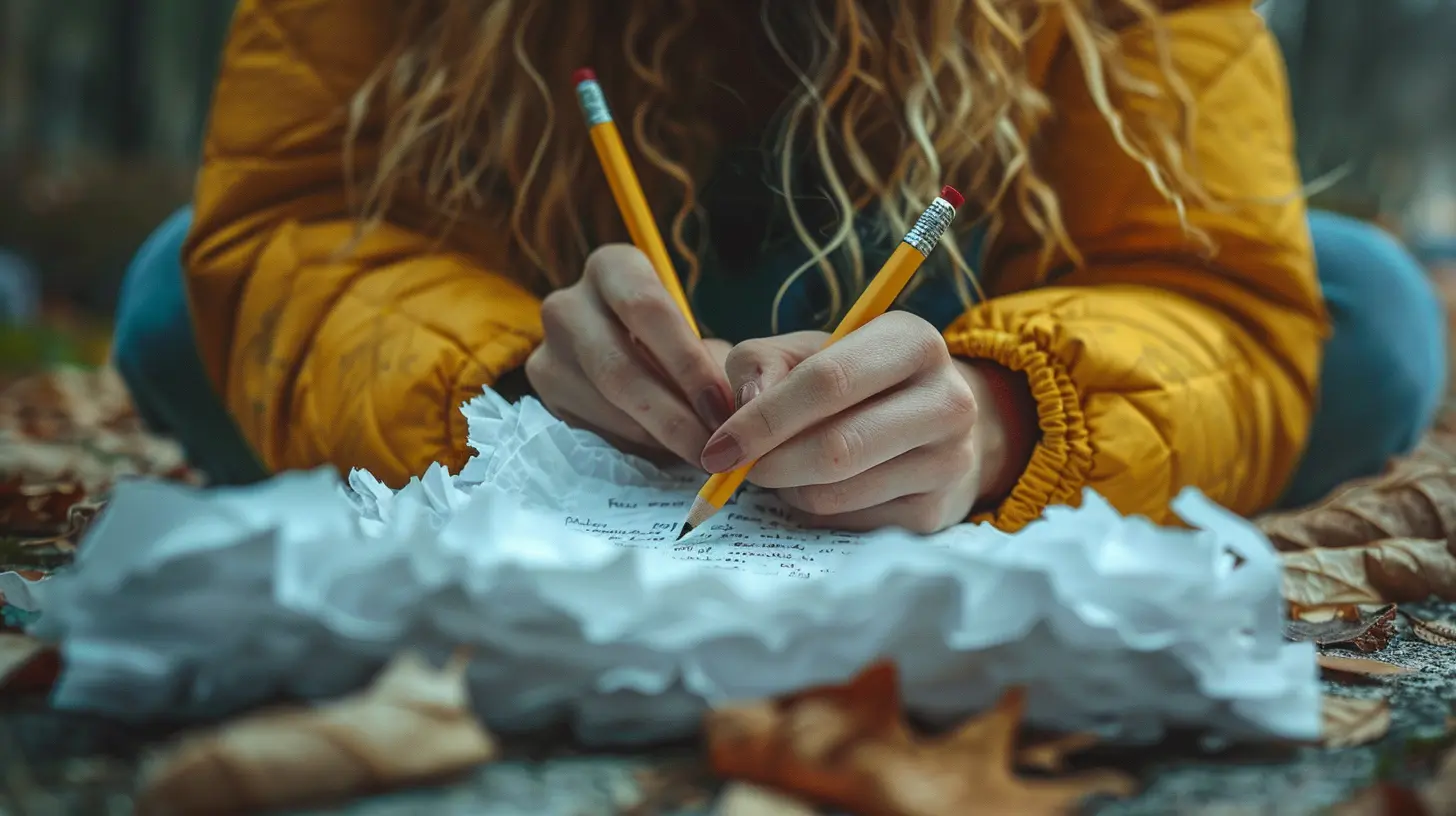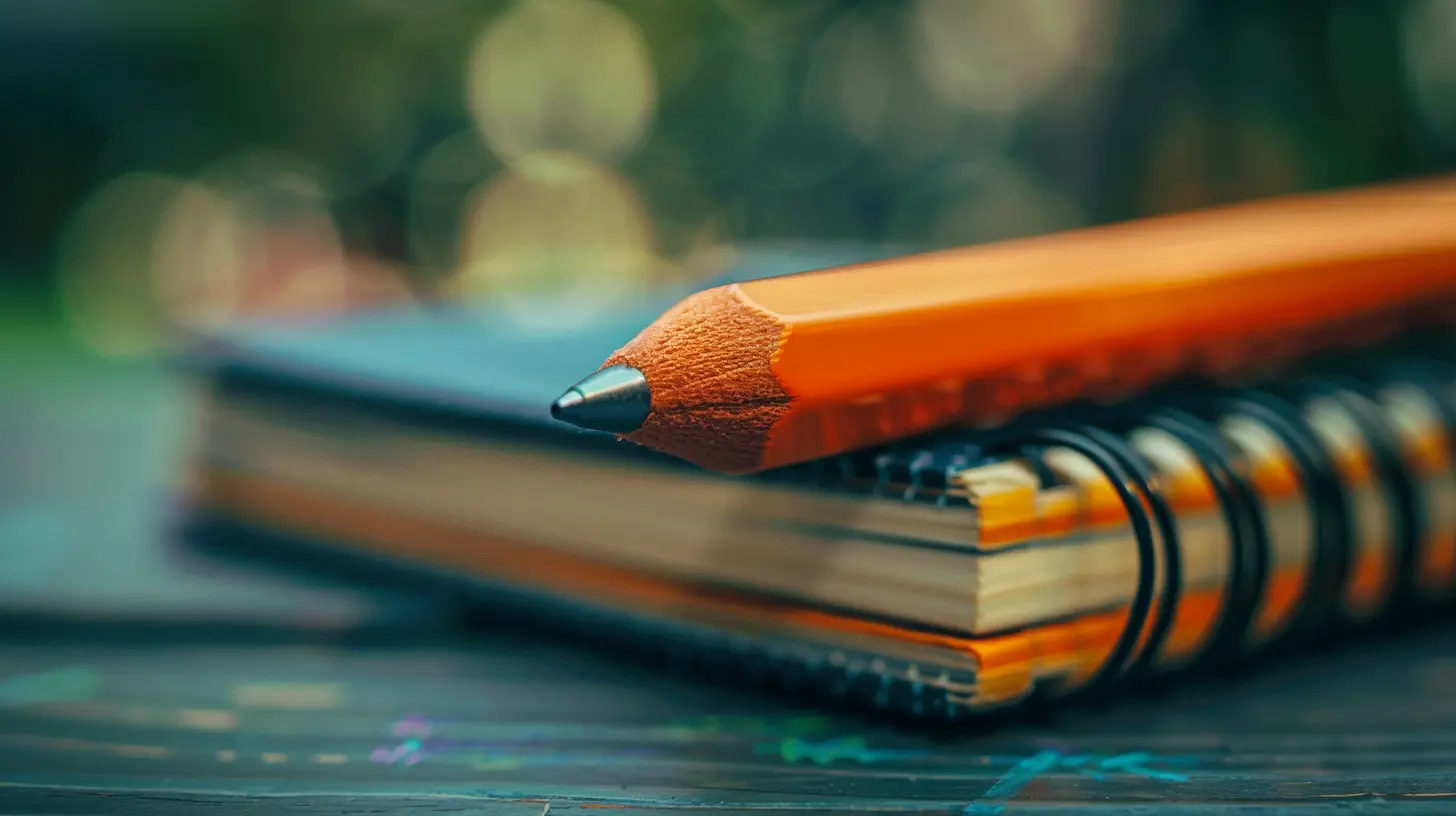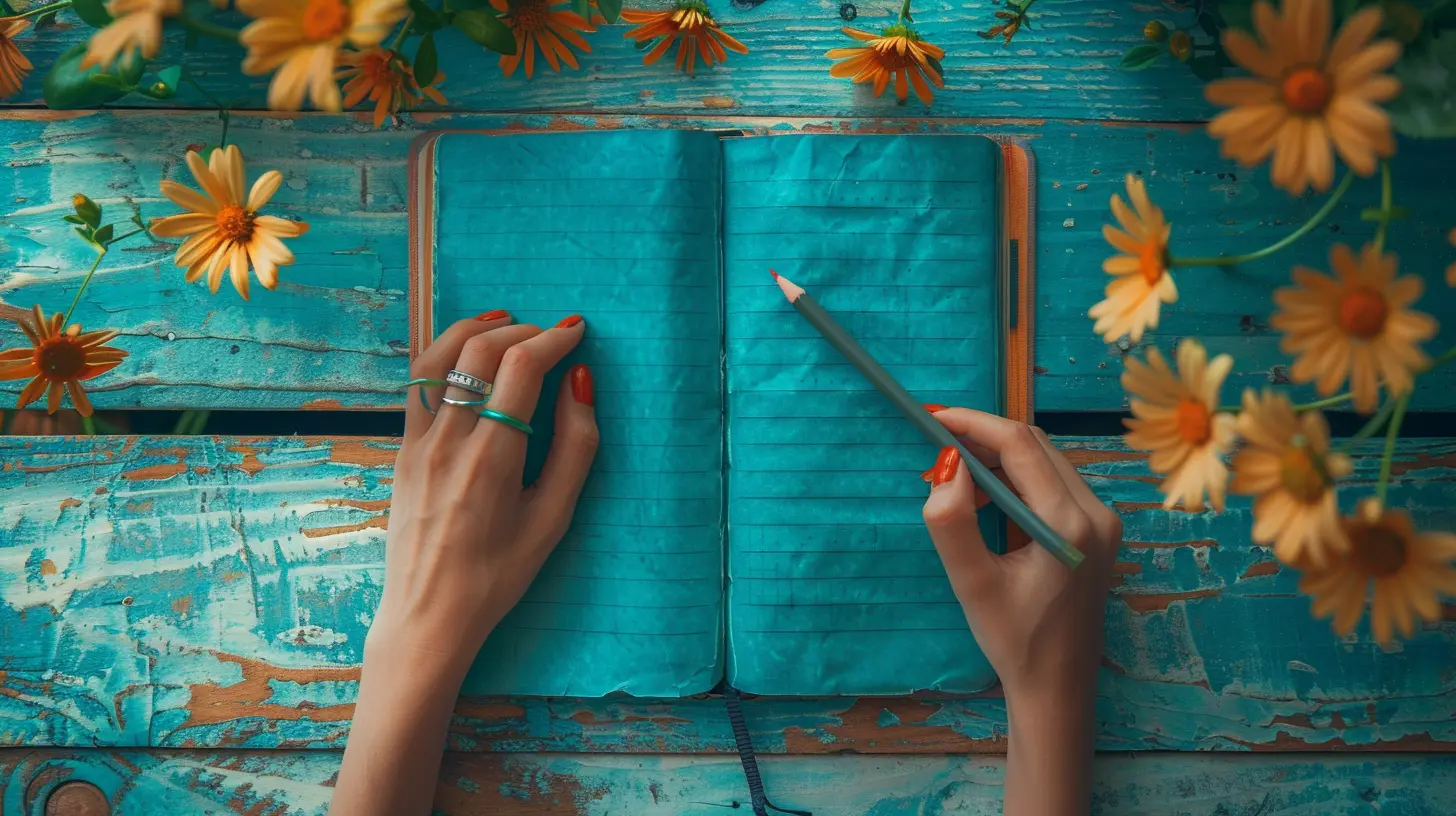Creative Ways to Start Your Next Writing Project
24 June 2025
Starting a new writing project can feel a lot like staring at a blank canvas—you know it has potential, but the emptiness is intimidating. Whether you're a student stuck on an essay, a blogger searching for your next idea, or an aspiring novelist battling writer’s block, starting is often the hardest part.
But here’s the thing—writing doesn’t have to begin with a lightning bolt of inspiration or a perfect outline. Sometimes, all it takes is a little push, a sprinkle of creativity, and a willingness to just start messy. So, let’s walk through some fun, unconventional, and actually effective ways to kick off your next writing project. Trust me—this isn’t your typical “just write an outline” advice.
1. Start with a Strange Sentence
Let’s ditch the pressure of starting with perfection. Instead, kick things off with the weirdest sentence you can think of. Something like:> “The toaster screamed back when I ignored its feelings.”
Sounds ridiculous, right? But your brain will immediately want to follow that weirdness with more words. It’s like tricking yourself into getting started. You don’t have to keep that sentence (unless you’re writing a story about sentient appliances—then, go for it), but it breaks the ice.
Why it works: You remove the pressure of writing something “good” and just focus on writing something.
2. Eavesdrop for Inspiration
Don’t worry, I’m not asking you to become a full-time spy. But next time you're sipping coffee in a café, walking through a park, or scrolling through online forums—pay attention to bits of conversation. People say the most fascinating, funny, or bizarre things when they don’t know they're being overheard (respect everyone’s privacy, of course—no creepy behavior allowed!).Write down a line or two and use that as your story starter. Who is speaking? Why did they say that? What’s the backstory?
Bonus Tip: Keep a “quote journal” of interesting things you hear during the day. Future writer-you will thank you.
3. Use a Photo Prompt
They say a picture is worth a thousand words—so why not start there?Find a random photo online (Unsplash or Pinterest are great for this), close your eyes, click one, and use it as a launchpad. Describe what you see. Imagine the story behind it. Who lives in that house? What happened minutes before the photo was taken?
Think about: What emotions does the photo evoke? Could it be the ending scene of a story, or the very beginning?
4. Write a Letter You’ll Never Send
Here’s a little secret: letters are an amazing way to get your writing flowing. Write a letter to your past self, future self, your pet, your ex-best friend, your high school teacher—anyone. Let it be honest, messy, real.You can even adopt a fictional persona. Imagine a pirate writing to their long-lost love. Or a robot complaining to its programmer. Go wild.
Why this helps: Writing a letter is personal—and emotionally charged. It bypasses the perfectionist in your brain and taps into real feelings.
5. Try a “What If?” Brainstorm
If you’ve ever been around little kids, you’ll know they love to ask “what if” questions. And as annoying as that can be (“What if bears could fly?”), it’s actually a goldmine for creative writing.Try these out:
- What if gravity stopped working for one hour every week?
- What if people could only speak 100 words per day?
- What if animals had a secret government?
You get the idea. Start asking “what if,” and follow the rabbit trail.
6. Start with the Ending
We often think we have to write things “in order.” But who made that rule?Writing the ending first—what happens to the main character, how the big twist reveals itself, how the conflict is resolved—can give you a destination. Once you know where you're going, mapping out the journey becomes much easier.
Think of it like GPS: You plug in the destination first, right? Same goes for writing.
7. Use a Story Generator or Prompt Tool
There are so many great writing prompt generators online. No shame in using tools to get those creative gears turning—tools are there to help, not replace your creativity.Some awesome ones include:
- Reedsy’s Plot Generator
- The Story Shack
- Writing Prompts Subreddit
Even if the result is cheesy or odd, you might find a nugget of something interesting to build around.
8. Change Your Environment
If you always write in the same spot, your brain might be bored. Try switching it up.Head to a coffee shop, sit in the park, or even just move to a different room. Sometimes a fresh perspective physically can spark one mentally.
Pro Tip: Try writing by hand for a bit. Slowing down your pace can help you think differently and more thoughtfully.
9. Start with Dialogue
You ever eavesdrop on a conversation and think, “Man, that sounded intense”?Starting your project with a piece of dialogue—whether it’s an argument, confession, or weird joke—can be a powerful hook and a more natural place to start than describing a setting or character.
Example:
> “If you jump, I’m not catching you this time.”
Boom. You’re instantly curious, right? Who's jumping? Why? What happened last time?
10. Borrow a Structure (Then Break It)
Sometimes we’re stuck because we think we have to invent something completely original. But storytelling has patterns—and it’s okay to borrow a structure as your skeleton.Some options to start with:
- A hero’s journey arc
- A “day in the life” timeline
- A five-paragraph essay (but with flair!)
Once you’ve got the basics down, feel free to twist it into something uniquely yours.
11. Start With a List
This is especially great for nonfiction or personal essays. Make a list to get your ideas flowing. You can title it something like:- “Things I Wish I Could Say”
- “The Top 10 Moments That Changed Me”
- “Random Thoughts at 2 AM”
Each bullet point can be the seed of a larger section or chapter.
This format tricks your brain into writing without pressure. And before you know it, you've got full paragraphs forming.
12. Freewrite for 10 Minutes (No Rules Allowed)
This is a classic—but it works. Set a timer for 10 minutes. Write whatever comes to mind. No editing. No deleting. Don’t even worry if it makes sense.Your goal: Keep your fingers moving.
When you're done, highlight any interesting ideas, phrases, or themes. You might be shocked at the gems hiding in the mess.
13. Go Analog—Create a Vision Board
This one’s different: instead of writing first, make a visual board of colors, images, quotes, and themes that “feel” like your story or topic.Use a poster board or go digital with apps like Canva or Pinterest.
This helps if you struggle with visualizing where to start. By shaping the mood first, you’ll naturally start forming the words.
14. Pretend You're a Character
This one’s especially fun for narrative writers. Imagine you're the main character of your story (or of your essay—yes, essays have a voice too!).Then, write the beginning from that character’s point of view. Let them describe the world. Let them rant or question or react.
Think of it like method acting for writers. It helps you get emotionally connected to your project from the jump.
15. Write the Worst Opening Ever
I dare you to write the worst, most cringe-worthy, cliché-filled opening you can.Something like:
> “It was a dark and stormy night, and she was a misunderstood loner with a dark secret...”
Have fun with it. Be dramatic. Be over-the-top.
Now that you’ve got the worst out of your system? You’re free to start fresh. Usually what comes next is surprisingly good.
Wrapping It Up
Starting a writing project doesn’t have to be scary, and it definitely doesn’t have to be perfect. The key is to get something—anything—on the page. Think of these methods like jumper cables for your creative brain. When one doesn’t work, try another.Writing is part magic, part muscle. The more ways you know to stretch and warm up, the less intimidating the blank page becomes. So go ahead—pick a method and start messy. Your best writing often hides behind the weird, the playful, and the unexpected.
You’ve got this.
all images in this post were generated using AI tools
Category:
Writing SkillsAuthor:

Anita Harmon
Discussion
rate this article
2 comments
Rachael Huffman
Start with coffee, hope for brilliance—repeat!
November 16, 2025 at 3:33 AM

Anita Harmon
Absolutely! Coffee fuels creativity—let's brew brilliance!
Alexia Bowman
Great article! Your innovative ideas for kickstarting writing projects are inspiring. Embracing creativity can truly transform the writing process. I can’t wait to try out these techniques and see how they spark new ideas. Keep up the fantastic work!
July 8, 2025 at 3:03 AM

Anita Harmon
Thank you so much! I'm thrilled you found the ideas inspiring. Happy writing!


